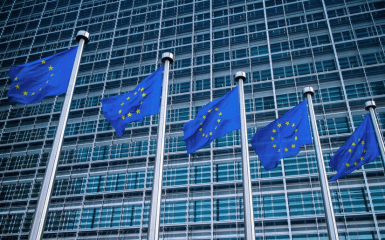The European Union will include aluminium products in the following sanctions against Russia. The countries hope to agree on the package next month — before the second anniversary of the Russian invasion of Ukraine.
A new package of sanctions against Russia: what is known
EU diplomats informed Politico about the sanctions plans.
The aluminium smelting process requires a lot of electricity, and energy prices account for up to 40% of production costs. Thus, sanctions against Russian aluminium are another way to impose sanctions on the Russian energy industry.
According to one diplomat, the countries will soon begin discussing "additional elements that will, in general, be a proposal for a total ban."
Politico says the biggest problem is that "all the big items are already under sanctions," "or other big items are unavailable, like nuclear power or LNG."
According to the trade organisation European Aluminum, the previous rounds of sanctions left about 85% of Russian metal exports to the EU untouched.
Russian gas and nuclear energy outside EU sanctions
Politico writes that Europe is still a cash cow for Russia: Hungary and other eastern EU countries oppose sanctions against Russia's nuclear sector, while Russia's Rosatom is already building two new reactors for Hungary.
At the same time, many EU countries, particularly Germany, opposed sanctions on Russian liquefied gas. While Germany reduced its consumption of Russian gas to 4%, other countries increased theirs.
For example, Spain is the largest importer of Russian gas in the EU (at the same time, the country re-exports part of this gas to other EU countries). Spain significantly increased its consumption of Russian LNG last year compared to 2022.
The EU, backed by the US, Japan and other allies, wants to prevent Russia from buying components it cannot produce itself and that it needs for high-tech weapons such as guided missiles.
However, the results were mixed: the circumvention of sanctions remains the main pain point of the EU.
We should really explore this kind of workaround. The tricky part about this is that some of these components are not subject to sanctions because they can be in something that looks quite innocent at first glance, we call it "refrigerator components" and the Russians take it apart and then use, said Lithuanian Foreign Minister Gabrielius Landsbergis.




